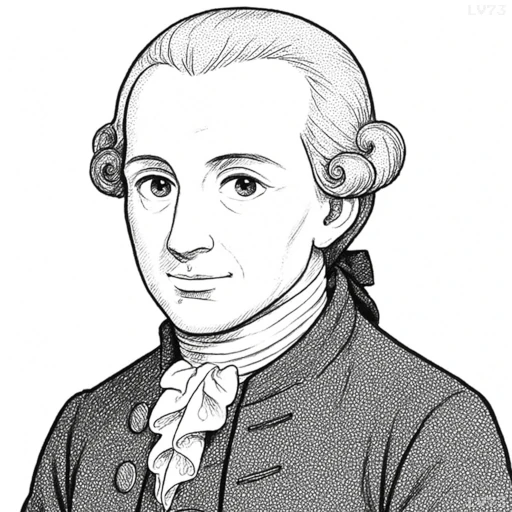“It is not God’s will merely that we should be happy, but that we should make ourselves happy.”

- April 22, 1724 – February 12, 1804
- Born in Germany (East Prussia)
- Philosopher
table of contents
Quote
“It is not God’s will merely that we should be happy, but that we should make ourselves happy.”
Explanation
In this quote, Immanuel Kant suggests that while happiness may be desirable, it is not something that can be passively received from a divine force or external circumstance. Rather, Kant emphasizes that it is our own responsibility to actively pursue and create our happiness through the choices we make in life. This aligns with his broader philosophy of autonomy and moral self-determination, where individuals are expected to take ownership of their lives and moral actions, guided by reason rather than external influences like fate or divine will. Kant’s notion of happiness is deeply tied to personal responsibility, implying that individuals must contribute to their own well-being through their actions.
In the context of modern society, this quote encourages individuals to focus on self-empowerment and intentionality in creating happiness, rather than waiting for circumstances or external forces to bring it to them. In today’s world, where many people look to external sources—whether wealth, relationships, or societal status—as key to their happiness, Kant’s assertion invites reflection on the role of personal agency. For example, instead of passively seeking happiness through material gain or fleeting pleasures, people can make decisions that align with their values and long-term fulfillment, such as pursuing meaningful work or building strong relationships based on mutual respect.
Historically, this idea marks a shift from traditional religious views of happiness as something granted by God to a more individualistic perspective. Kant’s philosophy emerged during the Enlightenment, a time when thinkers were advocating for a break from reliance on divine intervention and societal determinism. His view emphasizes human agency and moral obligation in determining one’s own happiness, which was a progressive idea compared to the dominant religious views of his time that often saw happiness as something granted by divine will. Today, this perspective continues to inform discussions on personal growth, mental health, and the pursuit of happiness as a deliberate effort rather than a passive state.
Would you like to share your impressions or related stories about this quote in the comments section?
